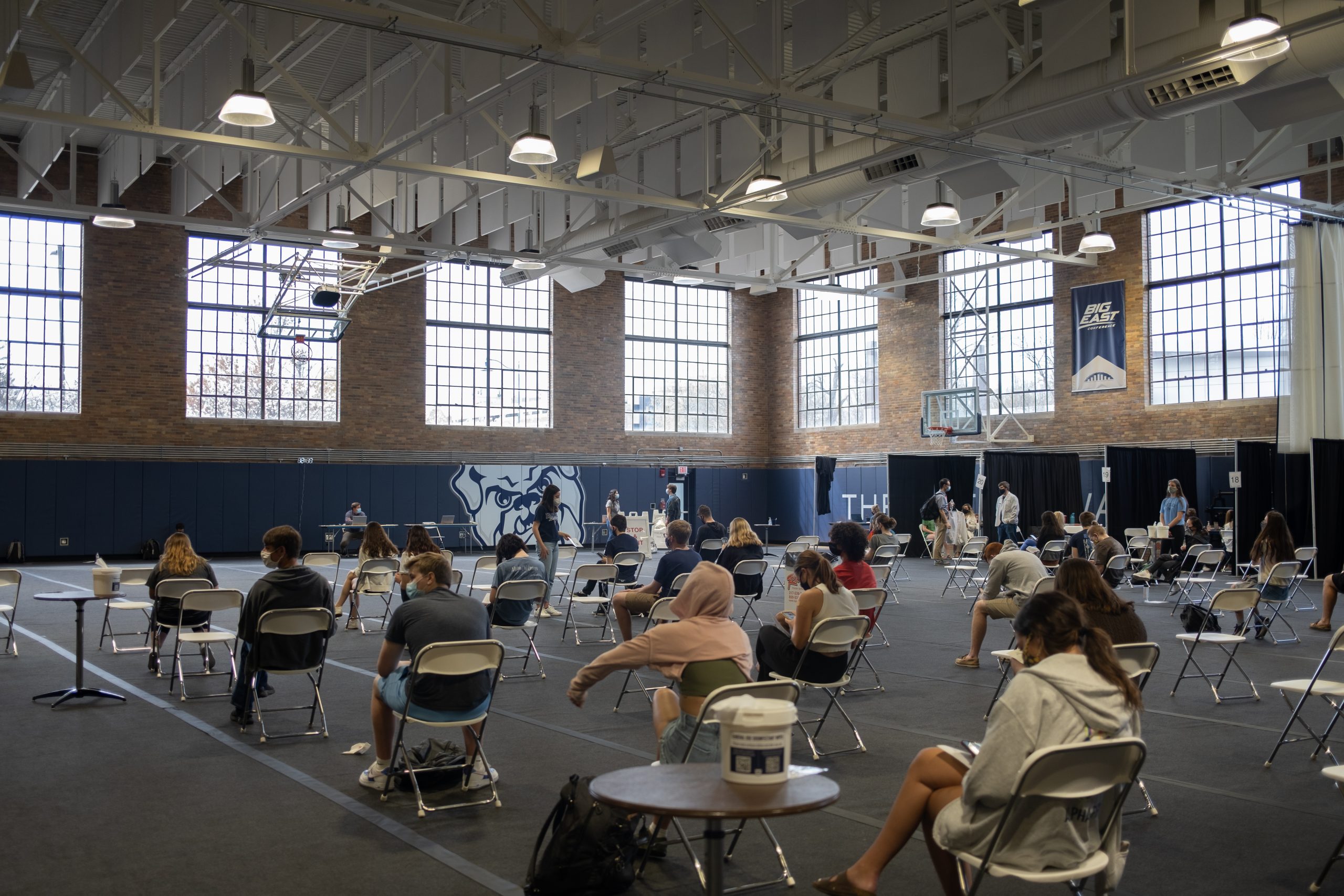Butler vaccination clinic April 2021. Collegian file photo.
ASHLEY CALLAGHAN | STAFF REPORTER | acallaghan@butler.edu
Anne Wilson, a Butler chemistry professor, had recently arrived home from Chicago when she heard the news: one of the three vaccinated individuals she traveled with had just tested positive for COVID-19. She immediately began double-masking at work and repeatedly disinfecting surfaces in her home.
Wilson received the Johnson & Johnson single dose vaccination in March, but because she knew that contracting COVID-19 after vaccination was a possibility, she made the decision to get tested after her exposure. Upon receiving a positive test result in her email inbox, she said she had a sinking feeling and an “oh crap moment.”
In the days following her positive test result, Wilson was confined to her bedroom as she experienced headaches, body aches, fever and a deep cough. These symptoms lasted for approximately 10 days after exposure. Though she is now back at work and feeling healthier, the effects of the virus are not completely gone.
“I don’t think I could run a marathon tomorrow,” Wilson said.
According to the Centers for Disease Control and Prevention, a virus that “breaks through” the protective barrier of a vaccine, such as the Delta variant, is known as a breakthrough infection. Vaccinated persons who become infected with COVID-19 typically have mild symptoms and can clear the infection faster than someone who is not vaccinated.
However, a person’s ability to contract COVID-19 after full vaccination — like Wilson’s breakthrough infection — has caused controversy over whether the vaccinations are doing their job. Wilson said that even after getting extremely sick, she is glad that she was vaccinated and, if she had to do it over, would get vaccinated again. She believes that the vaccination kept COVID-19 from migrating into her lungs and causing further health complications.
Going forward, Wilson said that the Butler community should continue to approach COVID-19 in a vigilant manner with masks, vaccination and testing when exposure is suspected. Butler’s updated COVID-19 guidelines have been established with this same vigilance in mind.
“I’m hopeful with the high percentage of the Butler community that is vaccinated, that the disruption to normal classes will be minimal, and I hope that we can be really responsible with one another,” Wilson said.
Kendra Damer, a pharmacist and Butler pharmacy professor, said the COVID-19 vaccines are highly effective at preventing symptomatic infection, including severe illness, hospitalization and death. Damer said the vaccines are particularly effective against the original strain of the virus, including mild and moderate cases.
Damer said viruses constantly mutate, and there have been several variants of COVID-19 thus far. Some viral mutations can cause infections that are more transmissible, extreme symptoms and increased viral load. At this time, the most prominent example of this is the Delta variant.
Though most of the Butler community has been vaccinated, Damer said breakthrough infections are something that we need to keep in mind this semester. In addition to vaccination, Damer stresses the importance of wearing masks and washing hands as frequently as possible.
“The bottom line that we all have to think about is trying to protect one another…doing whatever we can to protect one another,” Damer said. “There’s a lot to learn, we’re learning every day. We’ll see what tomorrow brings … hopefully better news.”
Brynn Baker, a first-year biochemistry major, received the Pfizer vaccination in late April. Like many first-year students, the idea of attending class virtually due to breakthrough infections of COVID-19 is a major stressor for her.
Baker said it is especially scary that getting sick after vaccination is a possibility, and even more so when it has happened to a member of the Butler community.
While Baker knows that she could still contract COVID-19 after her vaccination, she feels that vaccinations are an added layer of protection to keep students attending class in-person.
“I don’t want to come to school and be on campus and just be staying in my dorm,” Baker said. That’s not why I came to Butler. I came here for the community, I came here for the professors, so I want to make sure that I’m in class.”



